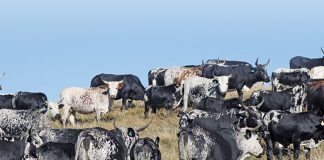
Photo: Lloyd Phillips
The tariffs introduced on poultry imports in 2020 resulted in an increase in the consumer price of chicken.
According to some industry role players, further tariff protection risked making this protein source unaffordable to the 40% of South Africans already regarded as poor.
READ Backyard broiler business: Start small, dream big
Responding to the South African Poultry Association’s (SAPA) application to the International Trade Administration Commission of South Africa (ITAC) for “antidumping duties” on chicken to be increased, the Association of Meat Importers and Exporters’ (AMIE) CEO, Paul Matthew, said the poultry industry needed help, not protection.
“[Individually quick-frozen] chicken [prices] have increased 9,1% year-on-year. This is the most popular cuts purchased, especially in the lower LSM target group. In January 2019, a 2kg [pack sold for] R63,87 and in February 2021 it was R77,60 for a 2kg [pack].”
Matthews added that although the poultry import tariffs had reduced the volume of chicken imported as it sought to do, a balance needed to be found.
READ Reduce heat stress in poultry with vitamin C supplementation
“In January and December 2019, compared with January and December 2020, total chicken imports (excluding mechanically deboned meat) were down 19,1%. Bone-in cuts were 27,3% down,” he said.
“AMIE does not believe that imports are harming the local industry, and that tariffs or anti-dumping duties are the way to solve the industry’s problems. AMIE’s focus is on the impact of prices on consumers,” he said.
Matthews said one of the key objectives of the Poultry Master Plan was to pave the way for local producers to export prime cuts such as white breast meat, with the EU being a great potential market for South African exports.
However, according to Izaak Breitenbach, general manager of SAPA’s Broiler Organisation, the most-favoured-nation tariffs that had previously been implemented did not have an impact on prices. However, due to pressure on the exchange rate of the rand against international currencies, imports had reduced since the outbreak of the COVID-19 pandemic last year.
Breitenbach said anti-dumping duties therefore needed to rather be seen as a vehicle to stop the illegal trade of poultry products.
“The new anti-dumping [duty] application, which was supported by 207 industry institutions, is for bone-in portions only, and excludes boneless portions and secondary products such as hearts and livers. The tariff applications vary, but the highest dumping margin found was 207%,” he said.
“The people that trade illegally buy products at price levels as low as 30% of production cost, but still sell at market prices. The price benefit is taken [up] by the illegal trader and not passed on to the consumer,” he explained.
Breitenbach added that it was difficult for authorities to determine which portions were legal and which were not in terms of following the paper trail of every container and thus adhering to the processes outlined by the World Trade Organization for calculating ‘dumping’ rates.
The new tariffs have been published in the Government Gazette and were awaiting public comment.











